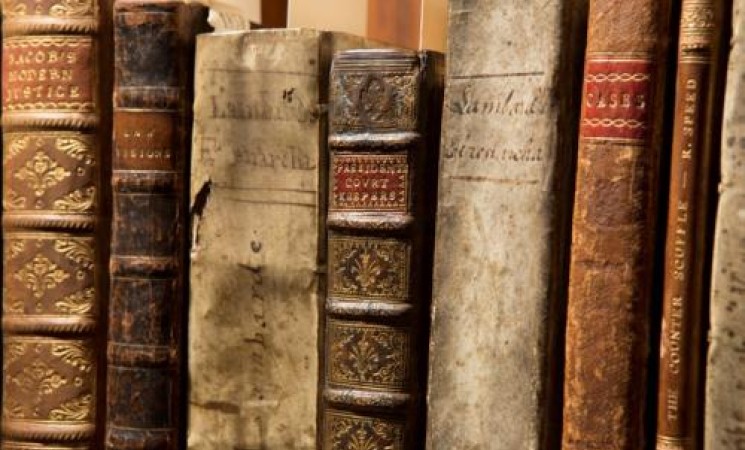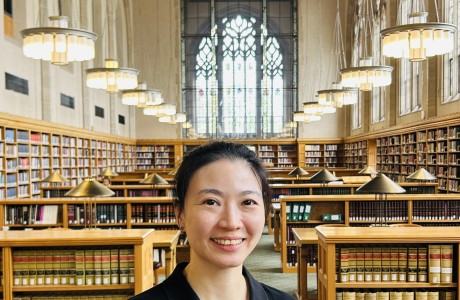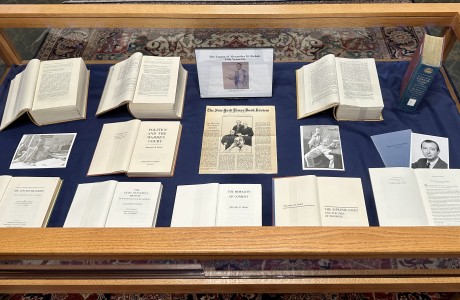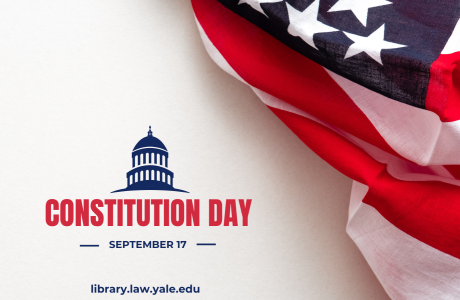New on the shelves: The Taussig Collection of English Law

While this blog was on hiatus this summer, news spread of the Lillian Goldman Law Library’s most significant rare book acquisition this year, and one of its most significant ever. I am referring to Anthony Taussig’s collection of English law books and manuscripts. See the June 16 article in the New York Times, “English Gavels Resound in a Trove Headed to Yale,” as well as an article in the Yale Law Report and news releases issued by the Yale Law School and the Beinecke Rare Book & Manuscript Library.
Anthony Taussig is a retired barrister of Lincoln’s Inn. He began collecting rare law books and manuscripts 35 years ago, and succeeded in forming the one of the finest collections of its kind ever built. While the collection has many outstanding high spots, what is most impressive is its breadth and depth in materials relating to the history of law practice in England, and its research value.
Taussig’s entire manuscript collection went next door to our colleagues at the Beinecke. The Law Library acquired 211 of Taussig’s printed books, which is only a small fraction of his collection. Their purchase was funded in large part by a generous grant from the Yale Law School’s Oscar M. Ruebhausen Fund.
The news media’s attention has gone to the high spots. The Abbreviamentum statutorum (ca. 1481), possibly the first printed book of English law, was the subject of a video essay, “The Sound of One Book Clapping,” by Mark Weiner on his Worlds of Law blog. The boke of iustyces of peas (1506) was the first printed J.P. manual; and The lawes resolutions of womens rights (1632) was the first English book on women’s rights.
Equal in significance, however, are the substantial additions in a number of fields. These include 52 titles relating to law reform, including the titles shown below; 27 titles on commercial law; and 18 titles on English bankruptcy. Our William Blackstone Collection, already the most comprehensive in the world, was strengthened with another 24 titles by and about Blackstone. In addition, we acquired 22 titles by William Sheppard, one of the most prolific legal authors of the 17th century, and 27 by Giles Jacob, the most prolific legal author of the 18th century. There were twelve titles by William Lambarde and seven by Michael Dalton. Eleven of the titles are by or relating to Granville Sharp, the founder of the British abolition movement. Mark Weiner looked at one of the Granville Sharp items in a video essay, “Sharp’s Numbers,” on his Worlds of Law blog.
In future posts we will look at these acquisitions in more detail. An exhibit and public program is also being planned. Stay tuned …
MIKE WIDENER
Rare Book Librarian

Clockwise from top left: The proctor and parator their mourning (1641); Decisiones provinciales cum notis variorum et Fusty-whyggii (1820?); Edward Whitaker, The second part of Ignoramus justices (1682); Some further advice to the gentlemen members of the late instituted Society of Attornies (1753).
Photographs by Harold Shapiro.


